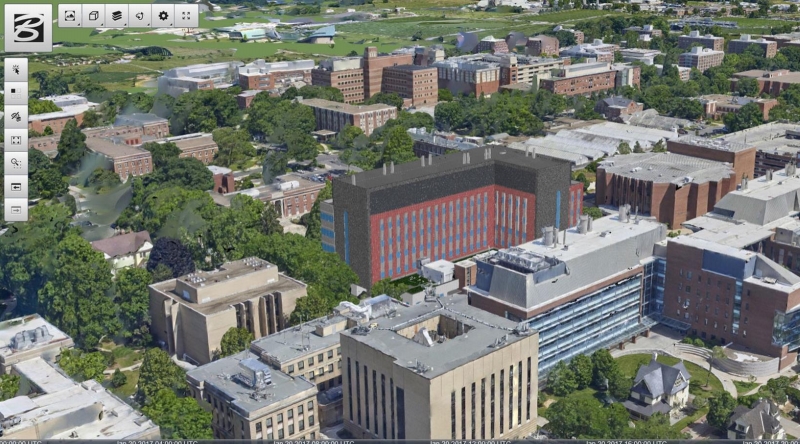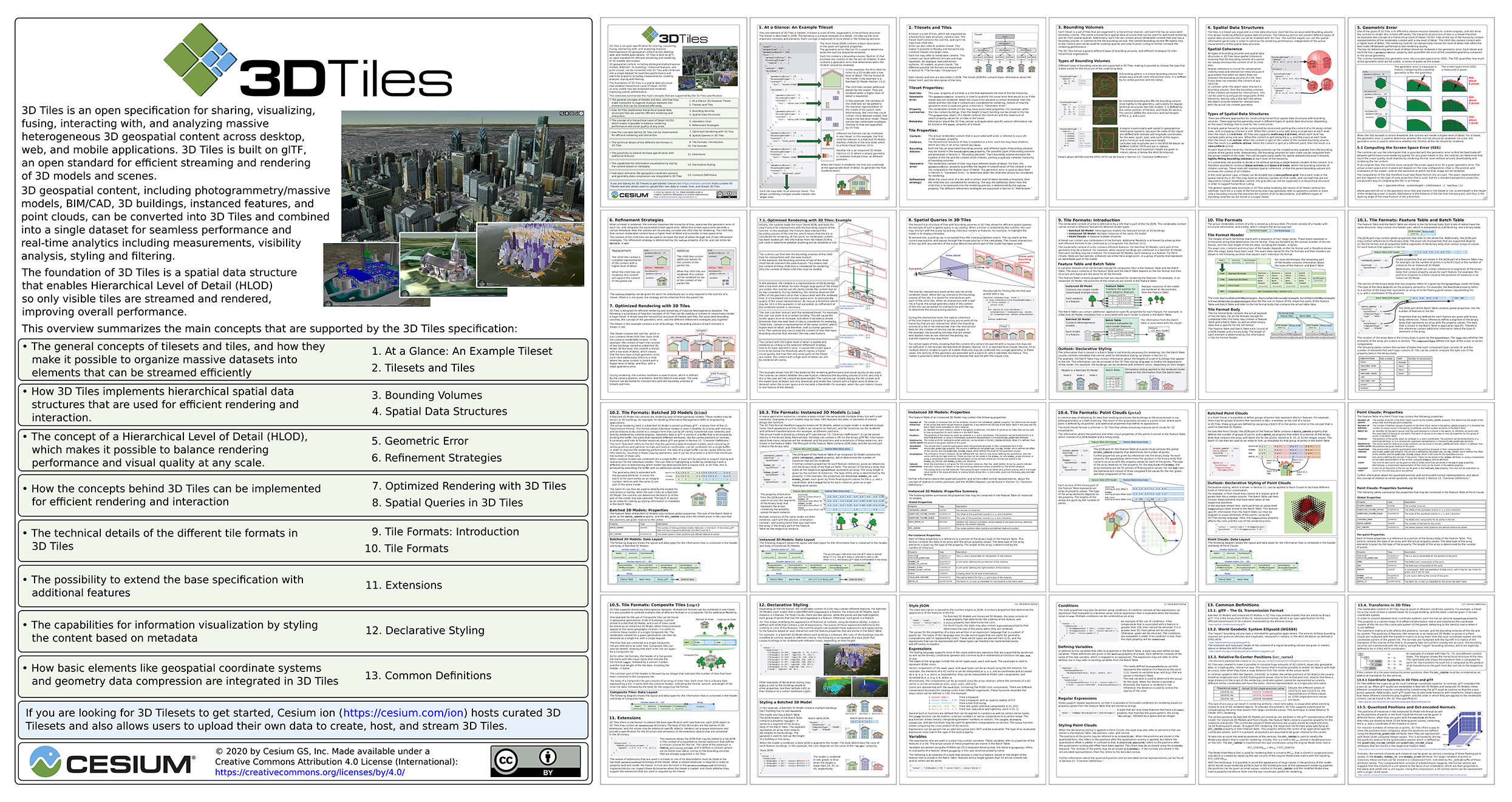A building CAD model is fused with photogrammetry data using 3D Tiles, data courtesy of Bentley Systems.
3D Tiles is an open specification for sharing, visualizing, fusing, and interacting with massive heterogenous 3D geospatial content across desktop, web, and mobile applications.
As an open specification with an open-source runtime implementation, 3D Tiles allows data providers and app developers to make massive and complex 3D information more accessible, interoperable, and useful across all kinds of tools and applications.
With a defined set of file formats, multiple types of 3D geospatial content including photogrammetry/massive models, BIM/CAD, 3D buildings, instanced features, and point clouds can be converted into 3D Tiles and combined into a single dataset.
Bringing techniques from the field of 3D graphics and built on glTF, 3D Tiles defines a spatial hierarchy for fast streaming and precision rendering, balancing performance and visual quality at any scale from global to building interiors.
3D Tiles preserve per-feature metadata to allow interaction such as selecting, querying, filtering, and styling efficiently at runtime.
Please provide spec feedback by submitting issues. For questions on implementation, generating 3D Tiles, or to showcase your work, join the Cesium community forum.
| Tool | Description |
|---|---|
| Cesium ion | Sign up for an account to to upload and convert content to 3D Tiles. Supports:
|
| CesiumJS | Open source JavaScript runtime engine for visualizing 3D Tiles |
| 3D Tiles Validator | Open source Node.js library and command-line tools for validating 3D Tiles |
| 3D Tiles Samples | Open source command-line tools for generating sample 3D Tiles |
| Safe FME | Desktop application for transforming data. The CesiumIonConnector converts data to 3D Tiles via Cesium ion. |
| Bentley ContextCapture | Desktop application for converting photographs and/or point clouds to 3D Tiles. |
See the 3D Tiles Ecosystem for examples of who's using 3D Tiles.
The 3D Tiles Overview is an approachable and concise guide to learning about the main concepts in 3D Tiles and designed to help integrate 3D Tiles into runtime engines for visualization and analysis of massive heterogeneous 3D geospatial content.
This guide augments the fully detailed 3D Tiles specification with coverage of key concepts to help developers jumpstart adopting 3D Tiles.
Additional tile formats are under development, including Vector Data (vctr) [#124] for geospatial features such as points, lines, and polygons.
See the full roadmap issue for plans post version 1.0 [#309], as well as issues marked as 3D Tiles Next.
3D Tiles is an open specification and contributions including specification fixes, new tile formats, and extensions are encouraged. See our guidelines for contributing in CONTRIBUTING.md.
Created by the Cesium team and built on glTF.


